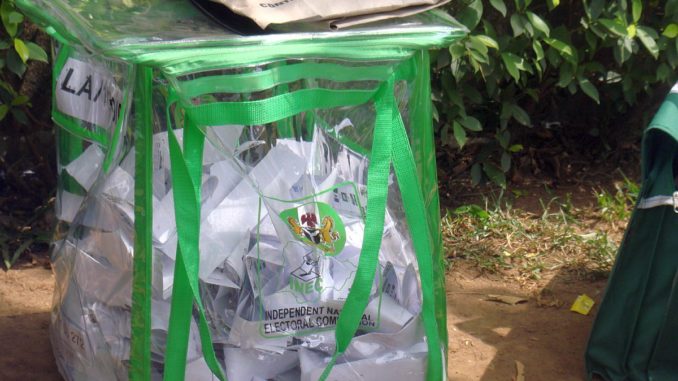
The Independent National Electoral Commission (INEC) recently presented certificates of registration to 23 new political parties, barely six months to the 2019 general election. This brings the list of approved political parties in the country to 91, up from 68. The latest registration is the second of such exercise in just over a year as five political parties were also presented certificates of registration in June 2017
Registration of new political parties is predicated on the constitutional provision allowing free association of persons as well as on promoting the widening of participation in the political space. However, as laudable as these goals are, they raise posers for INEC, the federal government and political party actors on the desirability or otherwise of proliferation of political parties.
The posers are three dimensional – To what extent is INEC prepared to accommodate these new parties and the attendant cost implication in its budget currently before the National Assembly; how convenient will it be for the federal government to provide additional funds to meet the exigency of new parties coming on the ballot; and how does increase in the number of political parties enhance the quality of party leadership?
It is easy for INEC to hide under the constitution to claim that it is mandatory for it to register political associations which meet laid down criteria for being approved as political parties. These criteria are relatively stringent enough to prevent registration of political associations as political parties in an all comer’s fashion. Has INEC been thorough in undertaking the rigorous task of verification of claims by political associations in the forms they fill in the process of registration? We doubt the efficacy of such verification exercise, given the number of parties which seem only to exist on paper.
On its part, government cannot project laissez faire attitude in the matter of registration of new political parties but needs to actively liaise with INEC, without necessarily eroding the electoral body’s independence, considering government has to provide the funding not only to INEC but to other state functionaries like security personnel who provide complementary services, often at huge cost. With INEC budget for the 2019 election ballooning to N189.2 bilion from the N87.8 billion in 2014 for the 2015 general elections, the cost factor must be of critical consideration.
As for political actors, we are of the view that many promoters of political associations are on ego trips and are not driven by the altruistic vision of serving the public good. We would like to urge INEC not to pander to this political self advertisers masquerading as serious political contenders.
We would like to note that India, the world’s most populous democracy with a population of 1.2 billion, has seven national political parties, two of which are dominant, 24 state recognised parties and 2044 unrecognised registered parties which can only attain recognised status by winning seats in elections or winning a minimum percentage of the popular votes in an election to demonstrate its appeal.
The United Kingdom has 10 major parties represented in the House of Commons, with two dominant parties and 15 minor parties, some of which only contest in Parish and community council elections.
The United States has five national parties, with a dominant two, with 34 minor parties mostly active at state and community levels. Making all political parties in Nigeria national parties, therefore, runs against the trend in other older democracies and could be responsible for non-relevance of many of Nigeria’s so-called national parties. The INEC should factor this into an amendment of the INEC electoral act to have state and local political parties.
The INEC chairman, Prof. Mahmood Yakubu, while presenting certificate of registration to five new political parties in June 2017 had reminded the party leaders that the law provided for de-registration of parties and warned :” We shall vigorously apply this aspect of the law as the need arises”. The list of 91 political parties is too long and can only serve to confuse the electorate.
We, therefore, believe the need has arisen for INEC to review the status of some parties which are mere numbers on the register, having shown no electoral relevance, and for it to do the needful by de-registering such parties before the next election.
END

Be the first to comment